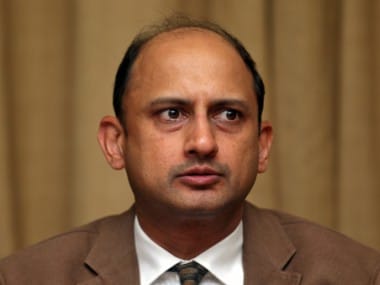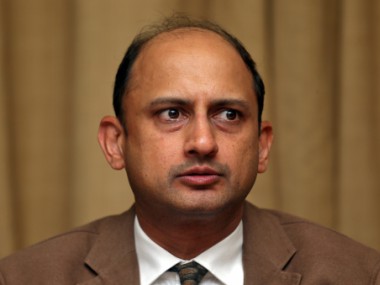Mumbai: Flagging the perils of high government debt, outgoing RBI Deputy Governor Viral Acharya has pitched for “reducing the ease” with which fiscal deficit goals are shifted through the establishment of an independent “fiscal council”. In the speech delivered in Kochi last year at a Federal Bank event and published on the eve of his demitting office after a surprise resignation last month, Acharya made a strong case for reducing the government borrowing and making more resources available for the private sector. Establishing “an independent fiscal council”, as suggested by the Fourteenth Finance Commission and the FRBM (Fiscal Responsibility and Budget Management) Review Committee of FY17, can help India, said Acharya. The government can improve adherence to the FRBM targets and “reduce the ease with which goalposts are shifted to future” through such a move, said the academic-turned central banker who will go back to teaching in an American university. “Such a council could monitor the government’s performance on sticking to the fiscal targets and roadmap by assessing regularly the progress in fiscal consolidation or lack thereof, and providing standardised reports on the displacement of fiscal deficits into off-balance sheet borrowings,” he said. [caption id=“attachment_6870011” align=“alignleft” width=“380”]  A file photo of Viral Acharya. Reuters[/caption] The government has resorted to stretching the FRBM targets with an aim to aid the growth process in the recent years and concerns are also being raised over the off-balance sheet borrowings done by the Government or entities controlled by it. For FY20, the Centre is targeting to get the fiscal deficit-the gap between income and expenditure for the government at 3.3 percent of GDP. “When it comes to borrowings and fiscal deficit, governments should take inspiration from Sachin Dev Burman’s sublime but masterfully minimalistic music for the songs of `Pyaasa’; Burman-da proved that less can indeed be more by crowding in everyone else, so can the government!” the music aficionado said. “Sometimes less of the government can be more for the economy,” he said, explaining that when a government dissaves and takes away a large portion of these savings, there is less left for the private sector, eventually “crowding out” investments by the private sector. In the speech uploaded on Federal Bank’s website late on Monday, Acharya clarified that the views expressed do not necessarily reflect the opinion of the RBI. He said India’s fiscal deficit at 6.68 percent of GDP makes it “stand out” and pointed out that the same can be up to 9 percent if we include the Public Sector Borrowing Requirements (PSBR) that will encompass borrowings by all the government bodies and entities controlled by it. Acharya also rued the mix of expenditure for which borrowing is skewed towards the revenue side and the capital expenditure, which has the potential to push growth, has consistently been below 15 percent. He said in times when Indian governments debt is high, corporations in the economy are borrowing less, pointing out to data which said when government debt increases by 10 percent of GDP, corporate debt issuances fall by 7.3 percent. If the government chooses to expand borrowing in a year when foreign investors are unwilling to invest in the country, the pie of savings available to the private sector doesnt have any room to expand globally, Acharya said. Citing the experience in FY19, when the foreign fund flows were negative, he said, “ideally, in such a year, it might be desirable that the government borrowing contracts in order to sustain the availability of bank loans and bonds for the private sector of the economy.” He said the private sector also tends to borrow more short-term when government crowds out with high borrowing, which can increase the risk of “financial fragility”. Acharya said the government’s high borrowing can also afflict monetary transmission, which the RBI is grappling with currently, explaining that the high returns given by the safer sovereign debt can dissuade rates elsewhere.
Viral Acharya made a strong case for reducing the government borrowing and making more resources available for the private sector
Advertisement
End of Article


)
)
)
)
)
)
)
)
)



